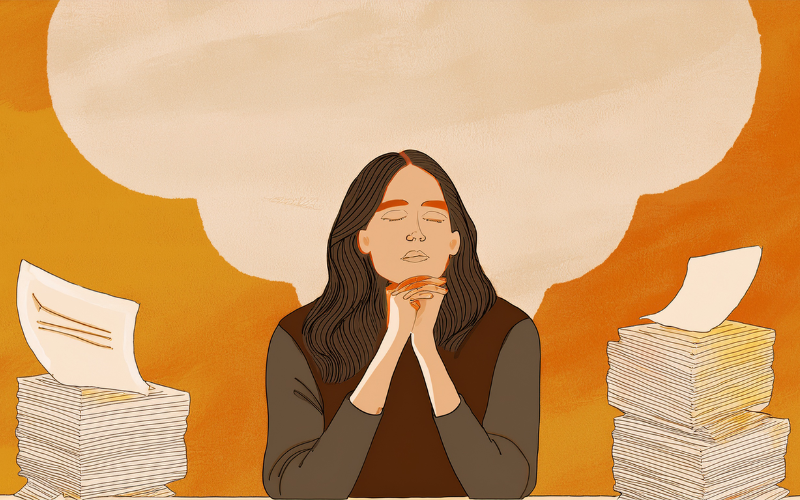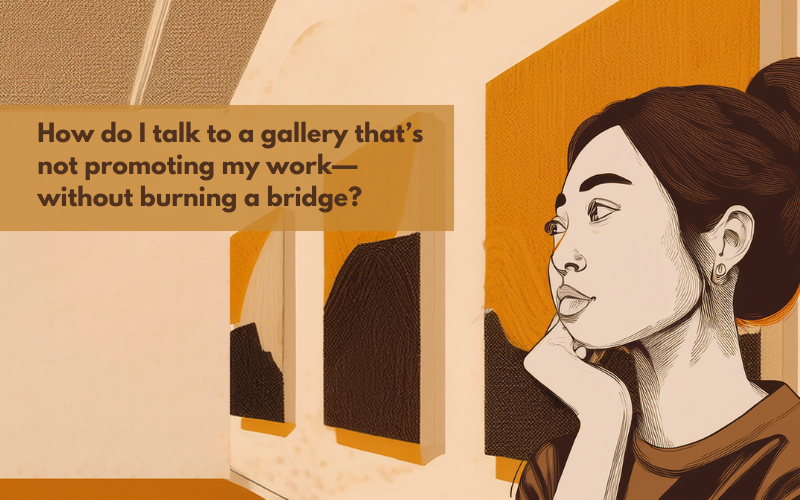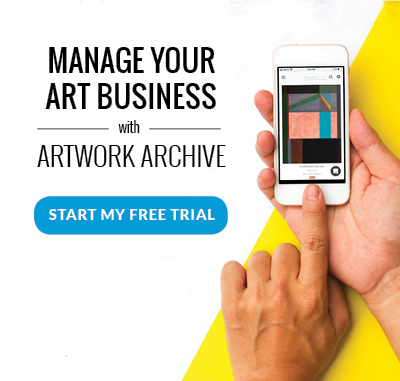Welcome to Ask Artwork Archive, a space where we answer real questions from working artists navigating the not-so-glamorous side of the art world.
This week’s letter comes from someone who’s been doing everything “right”—building a collector base, winning awards, landing a gallery contract. But after entering into a gallery partnership that started with excitement and promise, they’ve been met with… crickets. No updates. No sales. And now, a lot of uncertainty.
They’re not sure what’s normal, what’s fair to ask, or how to speak up without making waves. And that feeling is more common than you might think.
If you’ve ever felt unsure of how to advocate for your work, or questioned whether it’s even worth bringing up—this conversation is for you.
Let’s talk about how to move forward with professionalism and self-respect—and how to set yourself up for stronger gallery partnerships in the future.
Dear Artwork Archive,
I'm a painter, and I’ve been building my art business for the past three years. Things have been going pretty well overall. I’ve had solid sales at in-person shows, won four awards (including a $2,000 prize), and developed a small but loyal group of collectors.
Last year, I won an award at a gallery exhibition in a city near me, which led to a year-long contract with that gallery. I was so excited at first. But now I’m feeling stuck.
It took them four months just to upload my work to their website and since then…NOTHING. No sales, no updates, no real communication. I’ve seen no indication that they’re even promoting my work or engaging their audience with it in any way. Meanwhile, I’m selling my other pieces through different shows and collectors, so I know the work has a market.
I currently have six paintings sitting with them, and I feel like I’m missing out on opportunities. I’d rather have the work back or at least get some traction through the gallery, but I honestly don’t know how to start that conversation without burning a bridge. I also don’t know what’s reasonable to expect from a gallery contract like this, or if I’m just being too passive. What's the best way to approach this? Is there a way to ask for updates without sounding confrontational? How do I even go about doing that? And what should I be looking for before signing a gallery contract in the future?
Sincerely,
Trying to Protect My Momentum


Dear Momentum,
We’ve heard variations of this story more times than we can count, and it never gets less frustrating. When you hand your work over with excitement and trust, only to be met with silence or inaction, it definitely can feel like your momentum hits a wall. What you’re feeling is valid, and your questions are important.
A good first step is to take another look at the gallery contract you signed. We are by no means legal experts, and we’d never suggest breaking a contract outright (that’s a surefire way to burn a bridge, and the art world is more connected than we often realize). But reviewing the terms carefully might give you some helpful context.
Does the agreement mention an exact timeframe for displaying your work? Are promotional efforts presented? If the agreement mentions a timeframe for displaying or promoting the work—say, a full year of visibility or representation—and you have documentation that it took the gallery several months to even get your pieces online, that could potentially open the door to a respectful, solutions-focused conversation. You can absolutely speak up and advocate for yourself without being confrontational. The key is how you approach it.
Here are a few ways to open the conversation:
-
“I wanted to check in and see how things are going with my pieces in the gallery. I’ve noticed they were added to the site a bit later than expected, and I’d love to know more about what kind of promotion is planned going forward.”
-
“I know we’re a few months into the consignment term, and I want to make sure we’re both on the same page. Do you have any upcoming events or features planned that will include my work?”
-
“Since the pieces didn’t go up on the website until a few months in, I was wondering if we could discuss possibly adjusting the timeline or rotating the work so it has more opportunity to be seen?”
Remember, don’t demand or accuse. These conversations are delicate, and this is about collaborating. Yes, you’re frustrated, but the goal is to advocate for your work while maintaining professionalism and preserving the relationship, if possible. That said, you’re allowed to ask for clarity and to suggest a shift—whether that’s getting your pieces back early, rotating new work in, or aligning on a shared promotional plan going forward.
Looking ahead, there are a few things that can make situations like this easier to navigate in the future. First: keep every contract on hand and easy to access. It’s one of those things you don’t think about until you really need it, but moments like this remind us of how important it is. (If you’re an Artwork Archive user, you can upload and store contracts alongside your exhibition records so you’re never scrambling for details when you need them.)
Second, anytime you consign work—whether it’s with a gallery, interior designer, or pop-up event—include a Consignment Report. Even if the other party provides their own paperwork, having your own organized, professional list of works, prices, and terms helps reinforce that you're treating this as a business, not just dropping off some art. Again, if you’re using Artwork Archive, it’s easy to generate and share polished and professional Consignment Reports straight from your inventory.
And before entering future gallery partnerships, you might consider putting together a proposal that clearly outlines your terms, shares high-quality images of your work, and communicates your expectations upfront. Artists are starting to use Artwork Archive’s new Sales Pipeline feature to do this because it allows you to present your work professionally and keep track of the conversation as it evolves. Especially when pitching a new opportunity, having a thoughtful, organized presentation of your work can set the tone for a more balanced and transparent relationship from the start. Instead of relying on scattered emails or verbal promises, you want to build a paper trail—and present yourself as the organized, professional artist you are.
Since you asked what to look out for in future gallery contracts, here are a few red flags we recommend keeping an eye on:
-
Vague language around responsibilities. If there’s no mention of how your work will be promoted, displayed, or rotated, that’s a signal to ask more questions.
-
No defined timeline. If there’s no clear start and end date—or it’s “until sold”—you could end up with work in limbo.
- Exclusivity clauses. Be wary of galleries that demand broad exclusivity without clear justification or proven sales performance.
-
No process for early termination. A good contract should give both parties a professional way out if things aren’t working.
-
Lack of clarity around sales, commissions, or payouts. You should know exactly how you’ll get paid, when, and what percentage the gallery retains.
None of these are deal-breakers by themselves, and it's okay to ask for edits, clarification, or even walk away if something doesn’t sit right. Remember, contracts should protect both parties.
These moments are tough—truly. They can leave you second-guessing your decisions, your instincts, even your worth as a professional. When you pour so much into your work and put your trust in a gallery to help champion it, it’s incredibly disheartening to feel overlooked or out of the loop. But this kind of experience, while frustrating, is also a turning point. It’s a chance to refine how you protect your time, your energy, and your art. It’s an opportunity to draw clearer boundaries, ask better questions, and approach future partnerships with the kind of clarity and confidence that only comes from lived experience.
So take this experience as a signal—not that you did something wrong and are in a “bad situation”, but that you’re growing into a more empowered version of yourself as an artist and as a business owner. Every career has moments like this, and how you respond will shape the kind of artist you become.
We know how much heart and hustle it takes to do what you’re doing. Keep showing up for your work. Keep advocating for it. Keep moving forward. You’ve absolutely got this, and you haven't lost your momentum.
—Artwork Archive
Have a sticky situation in your art business you're trying to navigate?
Whether you're wrestling with pricing questions, client communications, gallery relationships, or those delicate professional boundaries—we know running an art business comes with unique challenges.
Have a situation in your art career keeping you up at night? A professional puzzle you'd love help solving? Share your question through the form below. You could get the guidance you're seeking, and your experience might just help fellow artists navigate similar waters!
We're all in this creative journey together, and some of the best solutions come from our shared experiences.
We look forward to hearing from you!






